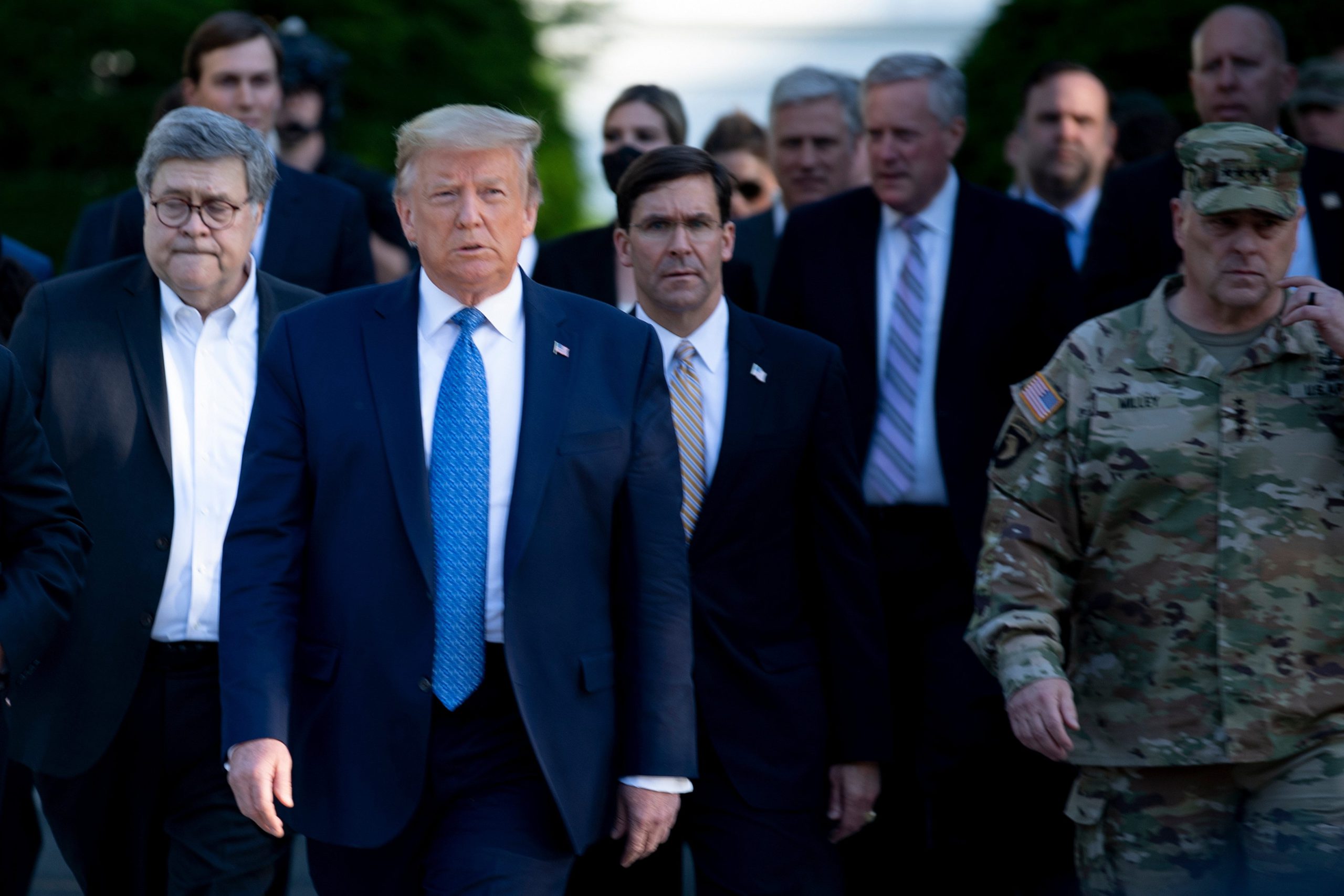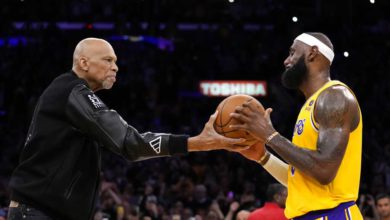

WASHINGTON – At the height of last summer's protests for racial justice, Gen. Mark Milley, chairman of the Joints Chief of Staff, unloaded on former President Donald Trump on how to handle unrest accompanying the demonstrations, a new account reveals.
In excerpts from an upcoming book by The Wall Street Journal's Michael Bender, as detailed by Axios, a confrontation between Trump and Milley over how to manage the protests reached a boiling point, with Trump shouting expletives at the military's top adviser to the president.
During a Situation Room meeting including Trump, Milley, former Attorney General Bill Barr and Defense Secretary Mark Esper, Trump called for invoking the Insurrection Act. He designated Milley as "in charge" of the government's response to a potential military crackdown on riots in communities across the country, according to Bender's account.
'It's just a joke':Former AG William Barr derided Trump's false election claims
The Joint Chiefs of Staff is a collection of the most senior members of the military. To preserve civilian control of the armed forces, the Joint Chiefs plays only an advisory role to the executive branch, including president, vice president and secretary of defense.
When Milley pushed back on the plan privately to Trump, the former president "had had enough," according to Bender.
The two entered an intense, profanity-filled exchange in which Milley told the president, "Well, I'm not in charge!" and Trump insisted the top general could not "talk to me like that!"
"There's a room full of lawyers here," Milley said in the Situation Room, multiple aides and officials present told Bender. "Will someone inform him of my legal responsibilities?"
"He's right, Mr. President," Barr said. "The general is right."
Related:Gen. Mark Milley fires back against GOP criticism of critical race theory
A Trump aide denied the story to Axios, saying the events depicted were "totally fake news; it never ever happened." Trump himself told the news site that "if Gen. Milley had yelled at me, I would have fired him."
Bender defended the reporting in his upcoming book, telling Axios the account "was confirmed by multiple senior administration officials during the course of hundreds of hours of interviews with dozens of top Trump World aides."
More:U.S. military airstrikes target militias backed by Iran in Syria, Iraq
Bender added that he had reached out to Trump and his team to confirm several accounts within the book, but the former president never responded.
In another excerpt from Bender's book, "Frankly, We Did Win This Election: The Inside Story of How Trump Lost," as reported by CNN, Trump told aides in the Oval Office that officers should "just shoot" civil rights protesters. When Milley and Barr pushed back, Trump recanted somewhat.
"Well, shoot them in the leg – or maybe the foot," Trump said. "But be hard on them!"
A back-and-forth ensued among Milley, Barr and several close Trump aides. Speechwriter and political adviser Stephen Miller also argued for invoking the Insurrection Act, and Trump cited Abraham Lincoln's use of it during the Civil War.
"That guy had an insurrection," Milley, referring to Lincoln, told Trump. "What we have, Mr. President, is a protest."
2020's racial justice protests were largely peaceful
Many protests for racial justice throughout 2020 saw harsh crackdowns from state and local law enforcement, and the National Guard was activated in several states. In Washington, D.C., more than a dozen federal law enforcement divisions, as well as military police, were deployed against protesters.
In several high-profile instances across the country, demonstrations turned violent as protesters clashed with police, and rioters and looters took advantage of the civil unrest.
Yet the vast majority of protests last summer were found to peaceful, according to comprehensive reviews of rallies across the country.
Graphic:Tracking protests across the USA in the wake of George Floyd's death
In a Rose Garden address last year, Trump called on governors and mayors to rally “an overwhelming law enforcement presence” or else he'd call in the military to “quickly solve the problem for them.”
Former military leaders condemned Trump's use of military force against peaceful civilians, and active-duty military advisers to the president at times expressed unease about participating in events that appeared partisan.
Follow Matthew Brown online @mrbrownsir.








